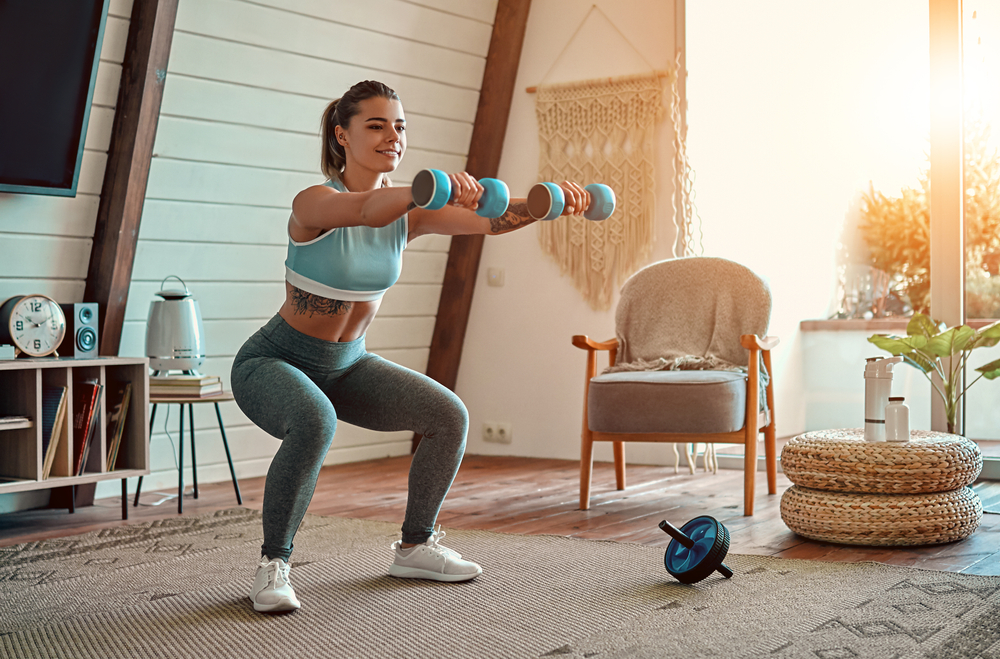Gastroenterologist Christine Lee, MD from global health system Cleveland Clinic says it’s not necessary to embark on a strenuous or expensive fitness routine to keep the digestive tract in shape.
Exercise is one of the most powerful ways to boost the gut health, which can lead to better digestion, improved immunity and help to prevent health conditions such as heart disease and autoimmune conditions, according to Christine Lee, speaking ahead of World Digestive Health Day.
“Exercise is probably the best ‘medicine’ we have for our health,” she says . “It’s something nearly everyone can do to feel better, and it doesn’t have to cost a thing.”

For those who are new to exercise, or who have health issues, particularly heart, lung, or back conditions, it is important to seek advice from a healthcare provider, and start slowly. Dr. Lee advises, “If you haven’t exercised in a while, then a brisk walk may be a good place to start. If you already work out regularly, you need to make sure you are doing something vigorous enough that gets your heart pumping.”
Ideally, an individual should aim for at least 30 minutes of exercise, five or more days a week. “However, if you can’t hit that goal, don’t give up. Any amount of activity is better than none,” Dr. Lee says.
There are five main ways to exercise can improve gut health, according to Dr Lee:
1. Improving gut motility
Regular exercise helps the digestive tract function optimally, Dr Lee says. “Your digestive tract is lined by muscles, and moving your body is good for muscle strength, your gut included. When we’re physically inactive, the muscles in our gut also become less active. Over time, they can experience a decrease in coordination and strength,” she explains.

2. Boosting circulation
During exercise, the heart pumps harder and faster, which improves circulation, that is, blood flow to the muscles, including the gut. “Exercise improves circulation throughout your body. When your digestive tract is better perfused – or has good blood flow – it becomes stronger and healthier, which creates a better environment to maintain the right balance of healthy bacteria,” says Dr. Lee
3. Keeping your metabolism healthy
The metabolism is the body’s process of turning calories into energy, and physical activity and regular exercise can improve the metabolism. According to Dr. Lee, “When your metabolism slows down, your gut motility slows down. When your gut motility slows down, this can create problems such as bloating, abdominal pains, indigestion, overgrowth of bad bacteria, bacterial translocation – that is, the passage of bacteria from the GI tract to other tissues or organs – panniculitis, diverticulosis, diverticulitis, megacolon, prolapse, hernias, and hemorrhoids, to name just a few.”

4. Setting you up for sleep
“Good-quality sleep is also important for your gut health. Unfortunately, it’s not as simple as lying down and drifting off to sleep. If you find it hard to fall asleep or stay asleep, getting regular exercise can be the natural remedy you need,” says Dr. Lee. “Regular exercise earlier in the day can lead to better quality sleep habits and can improve some sleep disorders. When you sleep, your body, including the gut, gets the opportunity to perform cell repairs. This is vital for maintaining a healthy body and immune system,” she adds.
5. Toning your digestive muscles
Exercise can strengthen the muscles that make the gut’s contractions – known as peristalsis – more powerful and more effective. Dr. Lee explains, “As gut muscles become stronger, they are more efficient at expelling waste. Higher quality peristalsis is a key part of your digestive health because it moves the waste out of your body before it can disrupt your microbiome.”
Commenting on the best exercise for gut health, Dr. Lee advises people to do any type of aerobic or resistance exercises they enjoy and that work with their schedule and fitness level. “People hear the word ‘exercise’ and think they have to join a gym, but that’s not always the case,” clarifies Dr. Lee. “Raking leaves, vacuuming, moving furniture, mowing the grass or dancing to your favorite music can be a great form of exercise. Signs that you are exercising at a good intensity include increasing your heart rate, requiring deeper breathing, and working up a sweat.”

Visit clevelandclinic.org.
News and resources available at newsroom.clevelandclinic.org.
